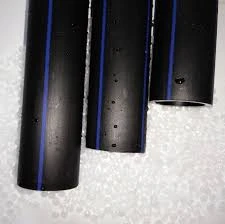Out . 31, 2024 18:14 Back to list
High-Density Polyethylene Pipe Applications in Efficient Drip Irrigation Systems
HDPE Pipe for Drip Irrigation A Sustainable Solution for Agriculture
Drip irrigation is an advanced method of irrigation that delivers water directly to the roots of plants in a controlled manner. Among the various materials used for drip irrigation systems, High-Density Polyethylene (HDPE) pipe stands out as one of the most effective and durable options. HDPE pipes offer numerous benefits that enhance the efficiency and sustainability of agricultural practices, especially in arid and semi-arid regions.
HDPE Pipe for Drip Irrigation A Sustainable Solution for Agriculture
Moreover, HDPE pipes are lightweight and flexible, making them easy to install and transport. Their flexibility allows for easy maneuvering around uneven terrain and obstacles, which is particularly beneficial in agricultural landscapes that may be irregular. Additionally, the lightweight nature of HDPE pipes reduces transportation costs and labor, making them a cost-effective option for farmers.
hdpe pipe for drip irrigation

Another significant benefit of using HDPE pipes for drip irrigation is their efficiency in water usage. Drip irrigation systems are designed to minimize water wastage by delivering precise amounts of water directly to the plant’s root zone. This targeted watering reduces evaporation and runoff, making it an ideal solution for areas experiencing water scarcity. With HDPE pipes, farmers can optimize their water use while ensuring that their crops receive the necessary hydration for growth.
In terms of installation and maintenance, HDPE pipes offer a simplified process that further enhances their appeal for farmers. The pipes can be easily fused together using a process called butt welding, which creates strong, leak-free joints. This seamless installation reduces the risk of leaks and maintenance issues over time. Furthermore, the smooth interior walls of HDPE pipes minimize friction loss, allowing for efficient water flow, leading to lower energy costs for water pumping systems.
Environmental sustainability is a growing concern in modern agriculture, and HDPE pipes contribute positively in this regard. Made from recyclable materials, HDPE pipes can be recycled at the end of their lifespan, reducing landfill waste. Additionally, the efficiency of drip irrigation systems powered by HDPE pipes means less water is drawn from freshwater sources, promoting sustainable water management practices.
In conclusion, HDPE pipes for drip irrigation represent a forward-thinking solution that addresses the challenges of modern agriculture. Their durability, efficiency, and environmentally friendly properties make them an excellent choice for farmers looking to enhance their irrigation practices. As the demand for sustainable agricultural methods continues to grow, HDPE pipes are likely to play a crucial role in shaping the future of farming, ensuring that crops thrive while conserving precious water resources. With these advantages, it's clear why HDPE pipes are becoming increasingly popular in drip irrigation systems worldwide.
-
High-Quality UPVC Water Supply Pipe for Durable Plumbing Solutions
NewsJul.23,2025
-
High-Quality PVC-M Water Supply Pipe for Reliable Plumbing Solutions
NewsJul.22,2025
-
High-Quality PVC Transparent Pipe with Clear Visibility & Durability
NewsJul.22,2025
-
Premium Wireless Headphones: Noise Cancelling & Long Battery | Order Now
NewsJul.21,2025
-
High-Quality PPR Pipes and Fittings Durable ERA PPR & PVC PPR Solutions
NewsJul.08,2025
-
Black HDPE Cutting Board - Durable, Non-Porous & Food Safe HDPE Plastic Cutting Board
NewsJul.08,2025

